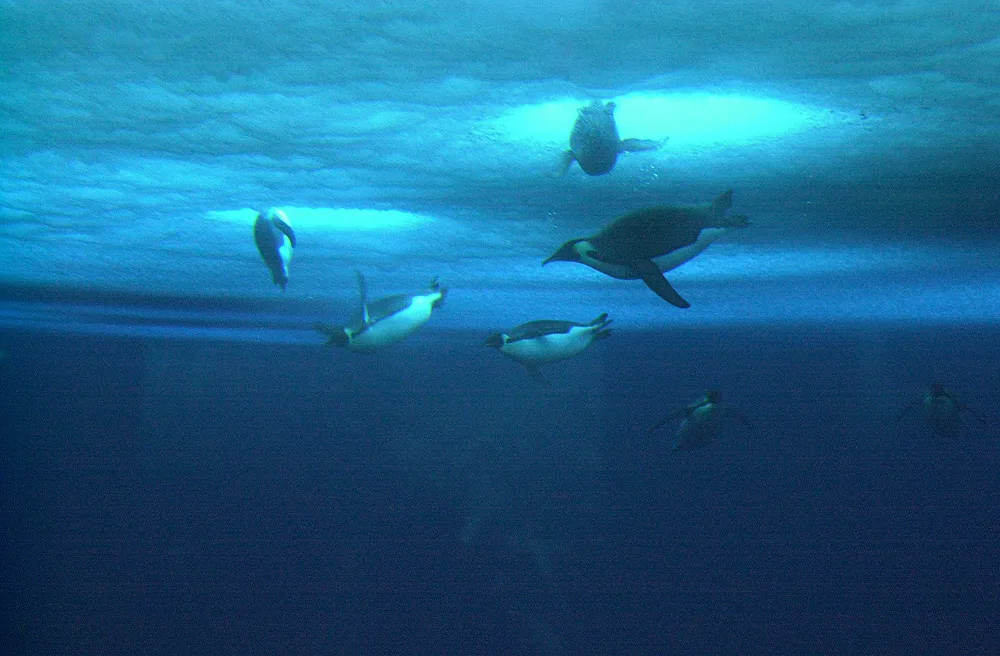Emperor penguins diving under ice
- Aptenodytes
forsteri
I love this picture, the way the penguins are just milling about underwater in the same way that they mill about out of it.
Emperor penguins tolerate low levels of oxygen during dives that would cause a human to pass out and they experience pressures so great that we would get the bends. Neither of these things seem to adversely affect penguins. Their diving physiology is studied at McMurdo Station at a place called penguin ranch 15 miles out in the sea ice where there is only a single hole in the ice, so the penguins must return there to leave the sea.
A penguin's normal resting heart-beat is about 60-70 beats per minute (bpm), this goes up to 180-200 bpm before a dive as they load up with oxygen, then as they hit the water, the rate drops to 100 bpm immediately slowing to only 20 bpm during most of the dive so they use the stored oxygen in blood and muscles to the maximum effect. On returning to the surface again, the heart rate goes back to 200 bpm probably to pay back the "oxygen debt" they have incurred during the dive.
Previous
Next
Back to thumbnails
Photograph by: Emily Stone - National Science Foundation

